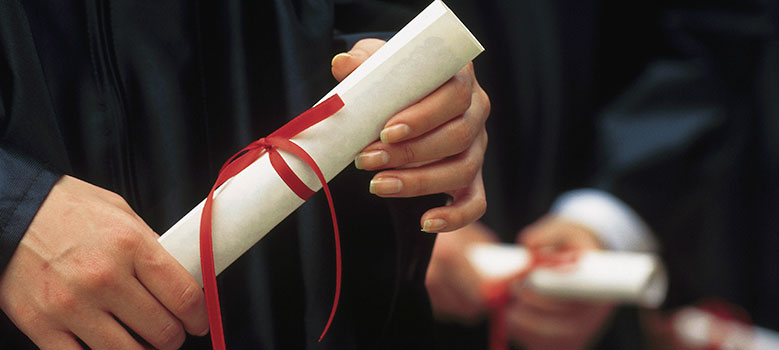2017-2018 CATALOG [ARCHIVED CATALOG]
Courses Offered
|
|
|

A grade of “C” or better is required in all prerequisite courses and in all courses specified by course numbers in the summary of required hours.
Note: Any program directed or technical electives, all Allied Health programs, Associate of Science in Teaching (AST), and Technical Certificates requires “C” or better in all course work.
|
| |
Physical Education (Activity Courses) Physical Education Activity courses meet 2 hours per week for each semester hour of credit. To encourage students to develop and maintain an active, healthy lifestyle, designated Physical Education Activity Courses are repeatable for credit, but no more than 6 hours (in any combination) may be applied toward a degree. Each course has a maximum limit as well (see course description).
Adaptive Physical Education
Students with Adaptive Physical Education needs may enroll in any of a number of regular Physical Education activity classes. These classes routinely begin with evaluation of each student’s physical profile and establish a personalized training or conditioning program based on the individual’s needs. A wide range of adaptations may be implemented, limited by considerations of the student’s personal safety and abilities and reasonable and appropriate use of the College’s equipment and facilities. |
| |
|
| |
|
| |
|
| |
|
| |
|
| |
|
| |
|
| |
|
| |
|
| |
|
| |
|
| |
|
| |
|
| |
|
| |
|
| |
|
| |
|
| |
|
| |
|
| |
|
| |
|
| |
|
| |
|
| |
|
| |
|
| |
|
| |
|
| |
|
Physical Science |
| |
|
| |
|
| |
|
Physical Therapist Assistant Admission to the Physical Therapist Assistant Program is a prerequisite for all PT courses. Please consult the SUMMARY OF REQUIRED HOURS; all PT courses shown in the same term are corequisites, all PT courses shown in the preceding term(s) are PT prerequisites, and all BIOL and PHYS courses are pre/corequisites to PT courses as shown. |
| |
|
| |
|
| |
|
| |
|
| |
|
| |
|
| |
|
| |
|
| |
|
| |
|
Physics |
| |
|
| |
|
| |
|
| |
|
| |
|
Plumbing |
| |
|
Political Science |
| |
|
| |
|
| |
|
Position Emission Tomography |
| |
|
| |
|
| |
|
Powerhouse Operations |
| |
|
| |
|
| |
|
| |
|
| |
|
| |
|
| |
|
Practical Nursing (LPN) |
| |
-
LP 000 - Practical Nursing
32.5 clock hours/week. Must be taken in sequence.
First Semester
Intro to the nursing profession; normal anatomy and physiology, nutrition, aging, basic math; nursing procedures to assist in maintaining normal function; clinical experiences in long term care facilities.
Second Semester
Study of alterations in normal function; focus on nursing care of adults with medical and/or surgical problems; includes disease process, diet therapy, and pharmacology; clinical experiences in acute care setting.
Third Semester
Specialty areas of obstetric, gynecologic and pedia tric nursing; intensive review for state licensing examination; concentrated clinical practice experience. First Semester: [F, S]; Second Semester: [S, Su]; Third Semester: [Su, F]
Click here for Fall course scheduling information.
|
Psychology |
| |
|
| |
|
| |
|
| |
|
| |
|
| |
|
| |
|
| |
|
| |
|
Quality Technology |
| |
|
| |
|
| |
|
| |
|
| |
|
| |
|
| |
|
| |
|
| |
|
| |
|
| |
|
Radiologic Technology A prerequisite to all RT courses is admission into the program in which the course is required. Please consult the SUMMARY OF REQUIRED HOURS for the specific program. All RT courses shown in the same term are corequisites and all RT courses shown in the preceding term(s) are RT prerequisites. BIOL, CHEM, and MATH courses required in the Radiologic Technology A.A.S. degree program are pre/corequisite to RT courses as shown, and all Freshman year courses are prerequisite to second year RT courses. Course descriptions may be abbreviations of the syllabi course descriptions. |
| |
|
| |
|
| |
|
| |
|
| |
|
| |
|
| |
|
| |
|
| |
|
| |
|
| |
|
| |
|
| |
|
| |
|
| |
|
| |
|
| |
|
Realtime Reporting: Scopist |
| |
|
Religious Studies |
| |
|
| |
Page: 1 <- 2
| 3
| 4
| 5
| 6
| 7
| 8
| 9
| 10
| 11
| 12
|
|